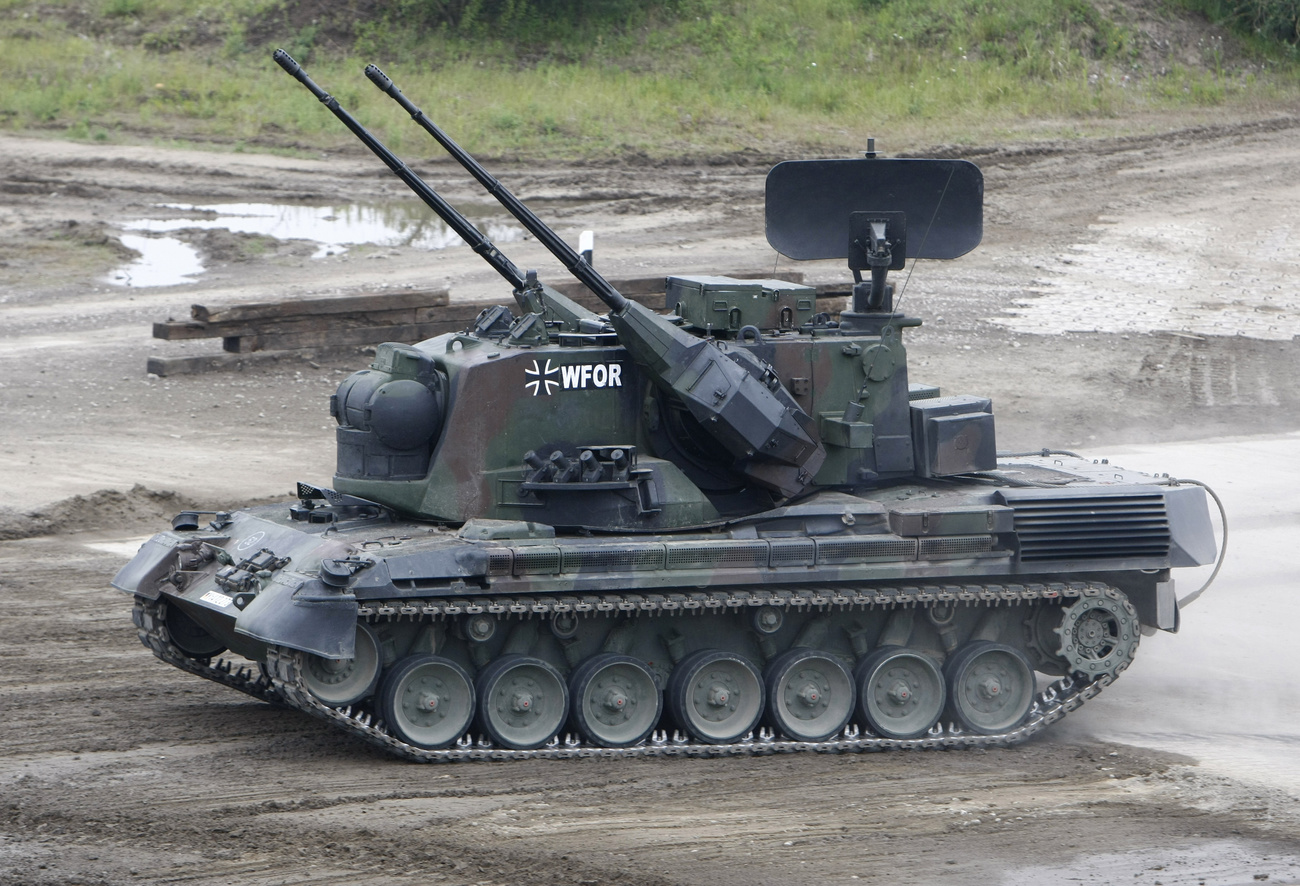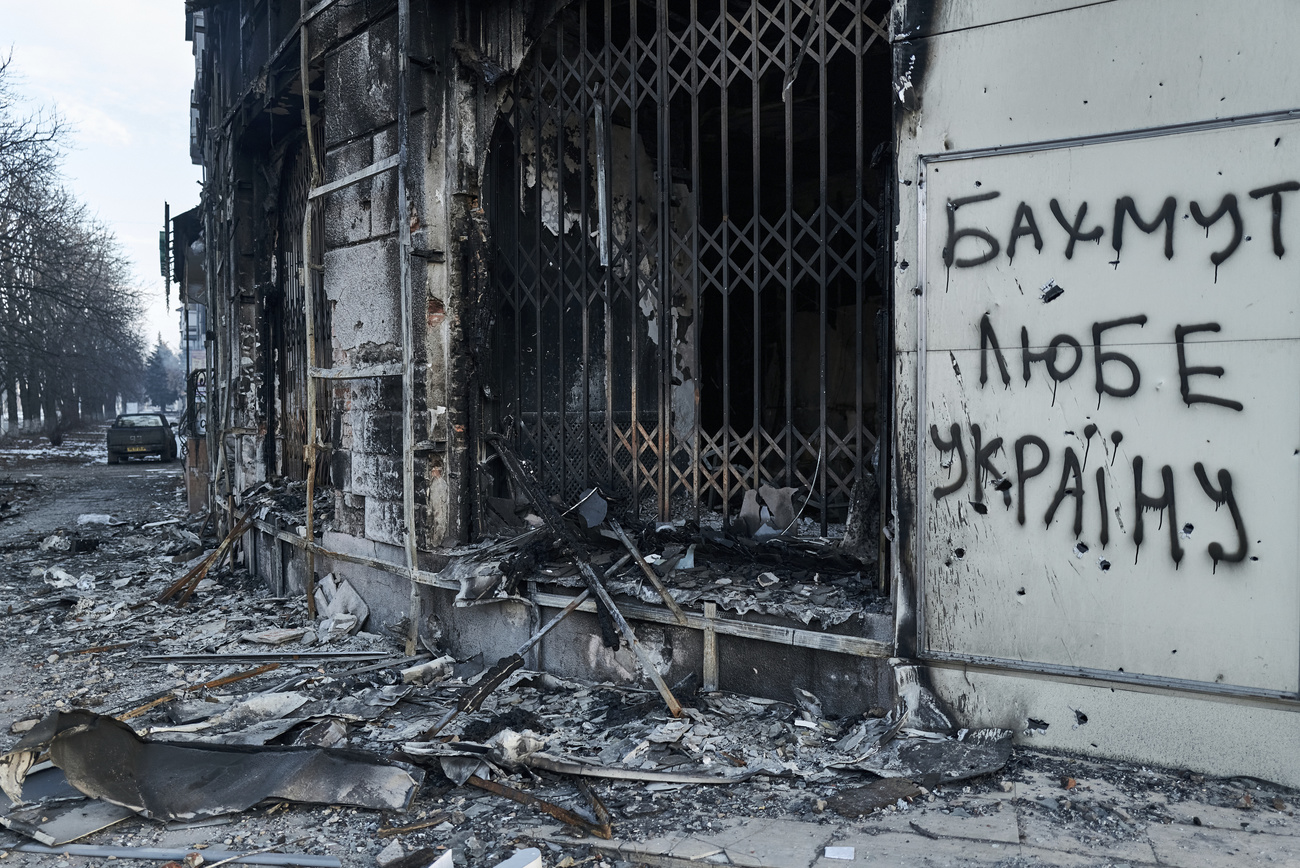
Re-export ban ‘beginning of end’ for Swiss defence firms

Germany’s decision to restart the production of ammunition for Gepard anti-aircraft guns in its own country, rather than relying on manufacturers in Switzerland, is having a major impact on the Swiss arms industry.
The fact that Germany no longer wants to rely on Switzerland in times of war is bad news for the Ticino-based business Casram, according to a reportExternal link by Swiss public television, SRF, on Thursday.
“A third of our business is in the aerospace and defence industry. Most of it in Switzerland. If the production of these goods is moved abroad, it will also affect the supply chains,” said sales and marketing manager Hans Noij.
+ Switzerland’s policy of not supplying arms to conflict zones
Casram’s 70 employees currently have their hands full, but Noij is worried about the future. “If the trend continues that several companies move their production from Switzerland abroad, Swiss SMEs [small and medium-sized businesses] will lose business,” he told SRF.
Like Casram, many SMEs supply the local defence industry. This employs 140,000 people and generates an annual turnover of CHF2.5 billion ($2.7 billion) – 2.5% of the entire metal, electrical and machine (MEM) industry. A large part of the exports go to Germany.
Neutrality
Neutral Switzerland requires countries that buy Swiss arms to seek permission to re-export them. According to Swiss law, exports of war materiel must be refused if the country of destination is involved in an international armed conflict.
The Swiss government’s refusal to send ammunition for German Gepard tanks to Ukraine or to allow the re-export of Swiss tanks from third countries to Ukraine has repeatedly prompted criticism.

More
Report: German politicians criticise Switzerland over Ukraine ammo veto
On Wednesday German Vice Chancellor Robert Habeck criticised Switzerland for its stance. “Some countries still have ammunition but are reluctant to supply it to Ukraine for historical reasons,” Habeck told Die Zeit. “We’re in talks with Switzerland, and I have to say it clearly: I cannot understand why Switzerland does not provide Gepard ammunition.”
Beginning of end
Industry association Swissmem assumes that after Germany other NATO states will no longer consider Swiss arms companies.
Swissmem armament expert Matthias Zoller sees the beginning of the end for the Swiss armament industry in the current export legislation. “Either you produce abroad or you’ll go under economically in the medium term,” he told SRF.
The ban on re-exporting war materiel is damaging the Swiss army, the country’s security and Switzerland as a technology location, Zoller said. All the basic knowledge for semiconductor chips, drone and missile technology comes from the defence industry and this would be lost to Switzerland, he explained.
Hans Noij also fears that Swiss technology could migrate abroad. As far as the future of his company is concerned, he is defiant. “We’ve been around for 70 years. We’ll survive this too.” Fortunately, he says, Casram still has other markets that it will develop.

More
Switzerland rejects Spanish request for arms re-export to Ukraine

In compliance with the JTI standards
More: SWI swissinfo.ch certified by the Journalism Trust Initiative





























You can find an overview of ongoing debates with our journalists here . Please join us!
If you want to start a conversation about a topic raised in this article or want to report factual errors, email us at english@swissinfo.ch.